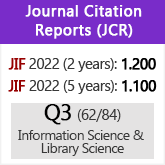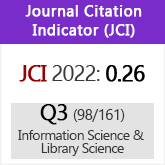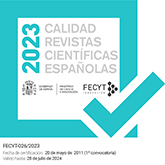Evaluation of Spanish thesauri for information retrieval
DOI:
https://doi.org/10.3989/redc.1998.v21.i3.357Keywords:
information retrieval, thesauri, performance of thesauri, free text vs. controlled vocabularyAbstract
The article describes an experimental test developed in Spanish databases. The test compares the performance between different thesauri and the natural language, in the process of information retrieval. The test was carried out with the combination of the analytic and sampling methods. The searches were made interactively, the records were evaluated, and the search strategies modified based on the parcial results. The references obtained with each kind of language were evaluated on the basis of the precision and recall ratios. The results point out that free text obtained a precision ratio of 63.4 % and a recall of 59.5 %; with the help of the thesauri both ratios improved: the precision reached a 86.8 % and the recall a 61.6 %. The conclusion is that the controlled vocabulary experiences lower levels of noise than the free text, at the same time it can develop high ratios of recall as the controlled one. Also, it is possible to conclude that the controlled vocabulary neutralizes the deficiences of the free text and vice versa, so both are complementary.
Downloads
Download data is not yet available.
Downloads
Published
1998-09-30
How to Cite
Gil Urdiciain, B. (1998). Evaluation of Spanish thesauri for information retrieval. Revista Española De Documentación Científica, 21(3), 286–302. https://doi.org/10.3989/redc.1998.v21.i3.357
Issue
Section
Studies
License
Copyright (c) 1998 Consejo Superior de Investigaciones Científicas (CSIC)

This work is licensed under a Creative Commons Attribution 4.0 International License.
© CSIC. Manuscripts published in both the printed and online versions of this Journal are the property of Consejo Superior de Investigaciones Científicas, and quoting this source is a requirement for any partial or full reproduction.All contents of this electronic edition, except where otherwise noted, are distributed under a “Creative Commons Attribution 4.0 International” (CC BY 4.0) License. You may read here the basic information and the legal text of the license. The indication of the CC BY 4.0 License must be expressly stated in this way when necessary.
Self-archiving in repositories, personal webpages or similar, of any version other than the published by the Editor, is not allowed.

















